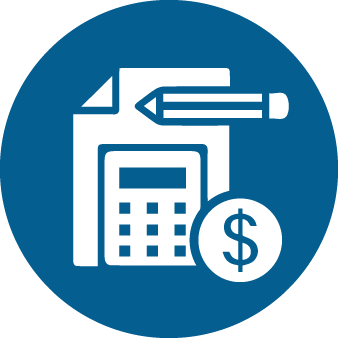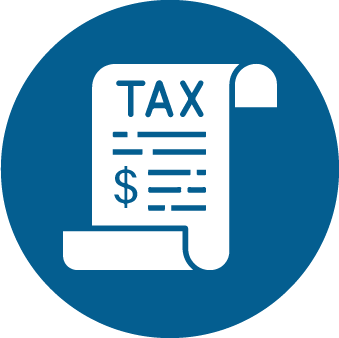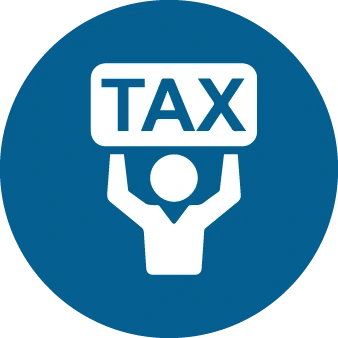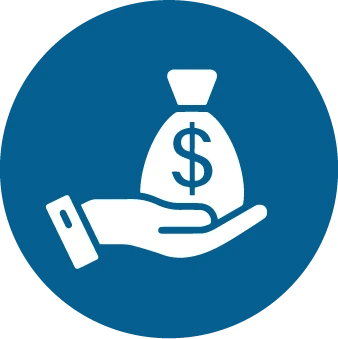Managing a restaurant's finances is crucial for its success. Effective NJ bookkeeping helps restaurant owners make informed decisions, track expenses, and stay profitable. With the complex nature of restaurant operations, including inventory management, labor costs, and customer sales, maintaining accurate financial records can be challenging.
Restaurant accounting basics involve tracking daily sales, managing inventory, and controlling labor costs. By implementing a robust bookkeeping system, restaurant owners can simplify financial management and ensure compliance with accounting standards. Precision Accounting Intl. specializes in providing expert accounting solutions tailored to the unique needs of restaurants, helping them navigate the complexities of financial management.
Key Takeaways
- Understand the importance of accurate financial record-keeping for NJ restaurants.
- Learn the basics of restaurant accounting, including daily sales tracking and inventory management.
- Discover how Precision Accounting Intl. can support your restaurant's financial management needs.
- Implement effective bookkeeping practices to simplify financial management.
- Ensure compliance with accounting standards and improve profitability.
Understanding the Unique Challenges of NJ Restaurant Bookkeeping
The world of restaurant bookkeeping is fraught with challenges, from high-volume cash transactions to intricate inventory management. Restaurant owners must navigate a complex financial landscape to ensure their business remains profitable and compliant with regulations.
If you’re just getting started, this guide explains what is bookkeeping service and how it applies to your restaurant business.
High-Volume Cash Transactions and Their Management
Managing high-volume cash transactions is a significant challenge for restaurants. With a high influx of cash comes the risk of theft, misplacement, or misreporting of funds. Implementing robust cash handling procedures and utilizing a reliable point-of-sale (POS) system can help mitigate these risks and ensure accurate financial reporting.
Inventory Management Complexities in Food Service
Inventory management in restaurants is complex due to the perishable nature of food items and the need to maintain a delicate balance between supply and demand. Effective inventory management involves regular stocktaking, precise forecasting, and strategic purchasing to minimize waste and optimize profitability.
Labor Cost Fluctuations and Scheduling Impacts
Labor costs in restaurants can fluctuate significantly due to factors like seasonal demand, staff availability, and labor laws. Effective scheduling and labor cost management involve using data and analytics to predict busy periods, optimize staff deployment, and control overtime expenses.
Tip Reporting Requirements and Compliance
Tip reporting is a critical aspect of restaurant bookkeeping, as it directly affects employee compensation and tax compliance. Restaurants must ensure that they accurately track and report tips, adhering to IRS regulations and maintaining transparent records to avoid potential penalties.
By understanding and addressing these unique challenges, restaurant owners can implement effective bookkeeping practices that enhance financial control, improve profitability, and ensure compliance with regulatory requirements.
Essential Financial Records Every Restaurant Owner in NJ Should Maintain
Maintaining accurate financial records is crucial for the success of any restaurant business. These records not only help in tracking the current financial health of the restaurant but also aid in making informed decisions for future growth.
Depending on your restaurant’s needs, there are several types of bookkeeping services to consider, from full-service accounting to basic financial tracking.
Daily Sales Reports and POS System Data
Daily sales reports and POS (Point of Sale) system data are fundamental to understanding the daily operations of a restaurant. These records provide insights into sales trends, peak hours, and customer preferences, which are essential for optimizing menu offerings and pricing strategies.
Inventory Tracking Documents and Food Cost Analysis
Inventory tracking documents help restaurant owners monitor stock levels and reduce waste. By analyzing food costs in relation to sales, owners can identify areas where they can improve profitability. This involves regularly updating inventory levels and comparing them against sales data to optimize menu pricing and portion sizes.
Payroll Records and Employee Tip Allocation
Accurate payroll records are vital for managing labor costs, which are a significant expense for restaurants. Proper allocation of tips to employees ensures compliance with labor laws and maintains employee satisfaction. Utilizing bookkeeping software for restaurants can streamline this process, making it easier to track and report tips.
Vendor Invoices and Payment Tracking Systems
Managing vendor invoices and payments efficiently is crucial for maintaining good relationships with suppliers and controlling cash flow. A reliable payment tracking system helps in monitoring outstanding payments and avoiding late fees, contributing to a healthier restaurant profit and loss statement.
By maintaining these essential financial records, restaurant owners can gain a clearer picture of their business's financial health, make informed decisions, and drive profitability through effective restaurant financial management.
Setting Up Your NJ Restaurant-Specific Chart of Accounts
To manage restaurant finances effectively, setting up a tailored chart of accounts is essential. A well-structured chart of accounts serves as the foundation for organizing financial data, making it easier to track performance and make informed decisions.
Revenue Categories: Food, Beverage, and Merchandise Sales
Categorizing revenue correctly is crucial for understanding the financial health of your restaurant. Typically, restaurants have multiple revenue streams, including food sales, beverage sales, and sometimes merchandise sales. By setting up distinct accounts for each category, you can analyze performance and identify areas for improvement.
Cost of Goods Sold Structure for Restaurants
The cost of goods sold (COGS) is a critical component of your restaurant's financials. It's essential to structure your COGS account to include the costs of ingredients, supplies, and other direct costs associated with menu items. This helps in accurately calculating profitability and making pricing decisions.
Operating Expenses Organization for Food Service
Operating expenses for restaurants include labor costs, utilities, rent, and marketing expenses. Organizing these expenses into separate accounts allows for better budgeting and cost control. For instance, having a specific account for labor costs can help in monitoring labor laws compliance and optimizing staffing levels.
Asset and Liability Accounts for Restaurant Operations
Asset accounts track the value of your restaurant's assets, such as equipment, furniture, and cash. Liability accounts, on the other hand, record debts and other financial obligations. Properly managing these accounts is vital for maintaining a healthy cash flow and making strategic financial decisions.
By following these guidelines and setting up a comprehensive chart of accounts, restaurant owners can gain a clearer understanding of their financial situation, enabling them to make data-driven decisions to drive profitability and growth.
How to Do Bookkeeping for Restaurants in NJ: Step-by-Step Process
Effective bookkeeping is the backbone of any successful restaurant, providing crucial financial insights that drive decision-making. To maintain a healthy financial status, restaurant owners must implement a systematic bookkeeping process that covers various timeframes.
Use this small business bookkeeping checklist to stay organized and ensure all critical financial tasks are completed on time.
Daily Financial Tasks and Cash Management
Daily bookkeeping tasks are fundamental to a restaurant's financial health. These tasks include:
- Recording daily sales and categorizing revenue
- Managing cash flow by monitoring cash receipts and payments
- Updating cash registers and POS systems
- Reconciling cash drawers at the end of each shift
By focusing on these daily tasks, restaurant owners can ensure accurate financial records and make informed decisions.
Weekly Reconciliation Procedures and Inventory Counts
On a weekly basis, restaurants should perform reconciliation procedures to ensure the accuracy of their financial records. This includes:
- Reconciling bank statements with internal records
- Conducting inventory counts to track stock levels
- Reviewing accounts payable and accounts receivable
These weekly tasks help identify discrepancies and prevent potential financial issues.
Monthly Financial Review and Statement Preparation
Monthly, restaurants should conduct a thorough financial review, which includes:
- Preparing financial statements such as balance sheets and income statements
- Analyzing financial performance against budgets and forecasts
- Reviewing payroll and tip reports for accuracy
This monthly review enables restaurant owners to assess their financial position and make strategic decisions.
Quarterly and Annual Financial Activities for Tax Compliance
Quarterly and annually, restaurants must comply with tax regulations. This involves:
- Preparing and filing sales tax returns
- Reporting employee tips and wages
- Maintaining records for annual tax filings
By staying on top of these tasks, restaurants can avoid penalties and ensure compliance with tax laws.
| Task Frequency | Task Description |
| Daily | Record sales, manage cash flow, update POS systems, reconcile cash drawers |
| Weekly | Reconcile bank statements, conduct inventory counts, review accounts payable/receivable |
| Monthly | Prepare financial statements, analyze financial performance, review payroll/tip reports |
| Quarterly/Annually | File sales tax returns, report employee tips/wages, maintain records for annual tax filings |
Implementing this step-by-step bookkeeping process helps restaurant owners maintain financial stability and drive business success.
Restaurant-Specific Financial Metrics That Drive Profitability
To drive profitability in a restaurant, it's crucial to monitor specific financial metrics that impact the bottom line. Effective restaurant financial management involves tracking key performance indicators that help in making informed decisions.
The main financial metrics that restaurant owners should focus on include food and beverage cost percentages, labor cost ratios, prime cost calculations, and revenue optimization strategies.
Food and Beverage Cost Percentages and Targets
Maintaining optimal food and beverage costs is vital. The ideal food cost percentage typically ranges between 28% to 35% of total sales, while beverage costs can vary from 20% to 30%.
Labor Cost Ratio and Productivity Measures
Labor costs are another significant expense. The labor cost ratio, which includes wages, benefits, and payroll taxes, should ideally be between 29% to 33% of total sales.
Prime Cost Calculation and Industry Benchmarks
Prime cost, the sum of labor costs and the cost of goods sold, is a critical metric. It helps in understanding the overall efficiency of the restaurant operations. The average prime cost for restaurants ranges between 55% to 65% of total sales.
Table Turnover Rate, Average Check Size, and Revenue Optimization
Revenue optimization is key to profitability. Metrics such as table turnover rate and average check size are crucial. Increasing the table turnover rate can significantly boost revenue without proportionally increasing costs.
To optimize these metrics, restaurants can implement various strategies, including:
- Menu engineering to improve profitability
- Staff training to enhance service efficiency
- Inventory management systems to reduce waste
- Pricing strategies to maximize revenue
By focusing on these financial metrics and implementing strategies to optimize them, restaurant owners can improve their profitability and ensure long-term success.
Essential Restaurant Accounting Terms
COGS (Cost of Goods Sold)
The cost of all the ingredients that go into each dish or drink. It also includes the cost of any packaging materials...as well as other supplies used in the kitchen."
Formula: Beginning Inventory + Purchases - Ending Inventory = COGS
Real Example: "Let's say you take your beginning inventory on June 1st and you have $12,743 in sitting inventory. Your June purchases are $11,500. You count again at the end of the month and it's $12,158. So: $12,743 + $11,500 - $12,158 = $12,085. That is your June COGS."
Prime Cost (The Big One)
Prime cost refers to the total cost of goods sold AND your total labor costs.
Why It Matters: "Prime cost is a critical metric for restaurants because it represents the largest expense for almost all restaurants and it's directly related to the profitability."
Industry Standard: "In general, your prime cost should be about 55 to 65 percent depending on what type of restaurant you have."
Reality Check: "So if you did like one million dollars in sales, your COGS and labor would be around six hundred thousand dollars. That is crazy, right?"
Chart of Accounts
A list that defines the area where the money flows in and out of the restaurant."
Instead of just listing "drinks" break it down:
- Lemon Juice (should be around 25% cost)
- Orange Juice (should be around 25% cost)
- Tea (should be 16-19% range)
- Coffee (can be 20-35% depending on the wine)
The more detailed your chart of accounts is, the more information you'll have.
Choosing the Right Bookkeeping Software for Your Restaurant
The right bookkeeping software can transform a restaurant's financial operations, making it a critical decision. With the numerous options available, selecting the most suitable one can be daunting. However, by understanding the key features and capabilities required for restaurant bookkeeping, owners can make an informed choice.
Curious about using QuickBooks for your restaurant? Start with the basics: what is QuickBooks and how it supports your bookkeeping needs.
Many restaurant owners find it cost-effective to outsource. Learn more about why outsource bookkeeping services in NJ to streamline operations and focus on customer service.
If you prefer working with a local expert, explore our bookkeeping service tailored for Clifton, NJ restaurants.
POS Integration Capabilities and Real-time Data Access
A crucial feature to look for in bookkeeping software is its ability to integrate with your Point of Sale (POS) system. This integration allows for real-time data access, enabling you to track sales, manage inventory, and monitor cash flow more effectively. By having up-to-date information, you can make timely decisions to optimize your restaurant's financial performance.
Inventory Management Features and Food Cost Control
Effective inventory management is vital for controlling food costs and minimizing waste. The ideal bookkeeping software should offer robust inventory management features that allow you to track stock levels, monitor usage, and automatically update inventory records. This helps in maintaining optimal stock levels and reducing the risk of overstocking or understocking.
Payroll Processing and Tip Handling Automation
Payroll processing is another critical aspect of restaurant bookkeeping. The right software should be able to handle payroll processing and tip handling automation, ensuring that employees are paid accurately and on time. Automated tip handling also helps in complying with tax regulations and reducing the administrative burden.
Financial Reporting Tools and Dashboard Analytics
To gain insights into your restaurant's financial health, you need comprehensive financial reporting tools and dashboard analytics. These features provide a clear overview of your financial performance, highlighting areas of strength and weakness. With this information, you can make data-driven decisions to improve profitability and efficiency.
By considering these key features and capabilities, restaurant owners can choose bookkeeping software that meets their specific needs, streamlines financial management, and supports the overall success of the business.
Tax Compliance and Reporting Requirements for NJ Restaurants
Tax compliance for restaurants involves several key areas that owners must be aware of to stay compliant. Managing restaurant finances effectively includes understanding and adhering to various tax laws and regulations.
It’s important to understand what services are taxable under NJ law. Here’s what you need to know: are bookkeeping services taxable?
Ensuring proper tax filings often requires professional guidance. If you’re unsure where to begin, consider working with a trusted New Jersey tax accountant who understands restaurant-specific tax regulations.
Sales Tax Collection, Reporting, and Payment Schedules
Restaurants must collect sales tax on taxable sales, which typically include food and beverages. The sales tax rate varies by location, and restaurants must report and remit this tax according to the schedules set by their state and local tax authorities.
- Register for a sales tax permit
- Collect sales tax on taxable sales
- File sales tax returns on the designated schedule
- Remit sales tax payments as required
Employee Tip Reporting Requirements and Form 8027
Restaurants must comply with tip reporting requirements for employees who receive tips. This includes filing Form 8027, "Employer's Annual Information Return of Tip Income and Allocated Tips," by February 28th of each year for the previous calendar year.
"Accurate tip reporting is crucial for compliance and for ensuring employees report their tip income correctly." - IRS Guidelines
Business Income Tax Considerations and Deductions
Restaurants are subject to business income tax on their taxable income. This includes income from food and beverage sales, catering services, and other business activities. Restaurant owners can deduct business expenses to reduce their taxable income.
Common deductions for restaurants include:
- Cost of goods sold (food, beverages, supplies)
- Labor costs (wages, benefits, payroll taxes)
- Occupancy costs (rent, utilities, maintenance)
- Marketing and advertising expenses
Record Retention Guidelines and Audit Preparation
Restaurants must maintain accurate financial records, including sales records, expense records, and payroll records. These records should be retained for at least three years in case of an audit.
Effective restaurant expense tracking and managing restaurant finances are crucial for tax compliance and overall financial health. By following bookkeeping best practices for restaurants, owners can ensure they're well-prepared for tax season and any potential audits.
Common Bookkeeping Mistakes Restaurant Owners Make (and How to Avoid Them)
Accurate bookkeeping is essential for restaurant success, but many owners unknowingly make costly mistakes. Effective financial management is crucial for maintaining profitability and ensuring the long-term viability of a restaurant. By understanding common bookkeeping pitfalls, restaurant owners can take proactive steps to avoid them.
To avoid these common pitfalls, it’s wise to work with a small business accountant in NJ who specializes in the restaurant industry.
Mixing Personal and Business Finances
One of the most significant mistakes restaurant owners make is commingling personal and business finances. This can lead to confusion during tax season and potentially trigger audits. To avoid this, it's essential to maintain separate bank accounts for personal and business expenses. Implementing a robust accounting system that can track and categorize expenses accurately is vital.
Inadequate Inventory Tracking and Food Cost Control
Inadequate inventory tracking can result in overstocking or understocking, both of which can negatively impact profitability. Restaurant owners should implement inventory management software that integrates with their point-of-sale (POS) system to track inventory levels in real-time. Regular inventory counts and analysis can help identify areas for cost reduction.
Improper Tip Reporting and Payroll Tax Issues
Tip reporting is a critical aspect of restaurant bookkeeping, as it directly affects employee compensation and tax obligations. Owners must ensure that employees report tips accurately and that these tips are properly recorded and taxed. Utilizing payroll software that can handle tip reporting and associated tax calculations can simplify this process.
Neglecting Regular Financial Review and Cash Flow Management
Regular financial review is crucial for identifying trends, managing cash flow, and making informed decisions. Restaurant owners should schedule regular financial check-ups to review sales data, expenses, and cash flow. This proactive approach can help mitigate financial risks and ensure the restaurant remains profitable.
By avoiding these common bookkeeping mistakes and implementing robust financial management practices, restaurant owners can improve their financial health and focus on what matters most – providing excellent dining experiences for their customers.
Should You DIY or Hire a Professional? - Expert Advice
Our approach to restaurant accounting comes from real-world experience helping restaurant managers who've been exactly where you are now. His key message is simple: "Know a little bit about cars so they don't screw you over" when you take your car to the mechanic—the same applies to your restaurant's finances.
Whether you choose to handle bookkeeping yourself or hire professionals, understanding these fundamentals will help you make informed decisions and avoid costly mistakes.
The most important takeaway from this industry expert? Don't let accounting overwhelm you to the point of paralysis.
Your restaurant's financial health—and your peace of mind—depend on it.
How Precision Accounting Intl Can Transform Your Restaurant's Financial Management
Precision Accounting Intl helps restaurants transform their financial management with expert accounting services. By providing tailored solutions to the unique challenges faced by restaurant owners, they enable businesses to achieve greater financial clarity and profitability.
Specialized Restaurant Accounting Services Tailored to Your Needs
Precision Accounting Intl offers customized NJ accounting services designed specifically for restaurants. Their expertise in managing high-volume cash transactions, inventory complexities, and labor cost fluctuations helps restaurant owners make informed decisions.
Custom Financial Reporting and Profitability Analysis
With Precision Accounting Intl, restaurants can benefit from custom financial reporting that provides insights into their financial performance. This includes detailed profitability analysis, helping owners identify areas for improvement and optimize their operations.
Tax Planning Strategies and Compliance Support
Precision Accounting Intl also offers NJ tax planning services and compliance support, ensuring that restaurants meet all necessary tax requirements and take advantage of available deductions. This expertise helps minimize tax liabilities and avoid potential penalties.
Cloud-Based Bookkeeping Solutions for Real-time Financial Insights
Their cloud-based bookkeeping solutions provide restaurants with real-time financial insights, enabling owners to monitor their business's performance at any time. This facilitates proactive financial management and timely decision-making.
By partnering with Precision Accounting Intl, restaurant owners can transform their financial management, achieving greater efficiency, profitability, and peace of mind.
For Restaurant Managers
- Don't panic like Phil did—accounting is learnable
- Start with cash accounting if you're a smaller operation.
- Focus on the four essential reports.
- Get detailed with your chart of accounts for better insights
- Consider professional help—it pays for itself
Conclusion
Effective bookkeeping is crucial for restaurant financial management, enabling owners to make informed decisions and drive profitability. By implementing bookkeeping best practices for restaurants, owners can better manage their finances, reduce costs, and improve overall performance.
Restaurant financial management involves more than just tracking sales and expenses; it requires a comprehensive approach to managing cash flow, inventory, labor costs, and tax compliance. By mastering these aspects, restaurant owners can optimize their operations and achieve long-term success.
To improve managing restaurant finances, consider implementing the strategies outlined in this article, such as setting up a restaurant-specific chart of accounts, leveraging the right bookkeeping software, and regularly reviewing financial metrics. By doing so, restaurant owners can gain valuable insights into their business and make data-driven decisions to drive growth and profitability.
FAQ
What are the most important financial records for a restaurant to maintain?
Restaurants should maintain daily sales reports, inventory tracking documents, payroll records, and vendor invoices to ensure accurate financial management and informed decision-making.
How can I effectively manage high-volume cash transactions in my restaurant?
To manage high-volume cash transactions, implement a robust point-of-sale system, conduct regular cash counts, and maintain a detailed cash handling policy to minimize discrepancies and ensure accuracy.
What is the ideal frequency for reviewing financial statements in a restaurant?
Restaurants should review financial statements on a monthly basis to track performance, identify areas for improvement, and make informed decisions about operations and strategy.
How can I optimize my restaurant's labor costs?
To optimize labor costs, analyze labor cost ratios, implement efficient scheduling practices, and consider automating certain tasks or adjusting staffing levels based on demand.
What are the key financial metrics that drive profitability in a restaurant?
Key financial metrics for restaurant profitability include food and beverage cost percentages, labor cost ratios, prime cost calculations, table turnover rates, and average check sizes.
How can I choose the right bookkeeping software for my restaurant?
When selecting bookkeeping software, consider factors such as POS integration, inventory management features, payroll processing capabilities, and financial reporting tools to ensure the software meets your restaurant's specific needs.
What are the most common bookkeeping mistakes made by restaurant owners?
Common bookkeeping mistakes include mixing personal and business finances, inadequate inventory tracking, improper tip reporting, and neglecting regular financial reviews and cash flow management.
How can Precision Accounting Intl help my restaurant with financial management?
Precision Accounting Intl offers specialized restaurant accounting services, including custom financial reporting, tax planning, and cloud-based bookkeeping solutions, to help restaurants achieve financial clarity and profitability.
Related Articles
Services provided for you
Bookkeeping Services in Clifton, NJ
We serve a range of industries and customers, in an organized, friendly, and reliable way.
Business Tax Services
We are in a position to identify tax planning shots that reduce both your current and future tax liabilities.
Individual Tax Services
We gauge our worth by the personal and business successes of our clients and industries.
Payroll Services
For small and large corporations, payroll systems, highly qualified payroll experts support our services. Our primary objective is to provide customized services and highly favorable pricing for you.
Non-Profit Organization Services
Precision Accounting Intl can assist you set up and maintain your non-profit organizations nontaxable standing by handling all the authority reportage for you.
Part-Time CFO Services
If you"re ready enough to be in this role. Our Part-Time CFO Service Package provides you with a knowledgeable financial manager who will work with you to help guide the progress of your business.




.webp)






